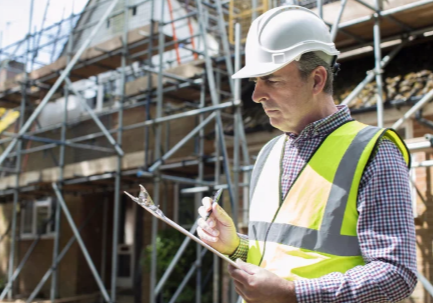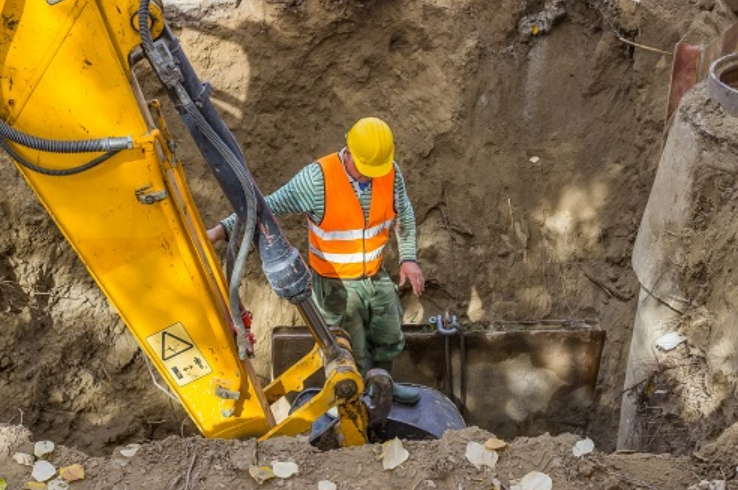Understanding the Role of Construction and Building Inspectors in Modern Development
When a new building rises from the ground—whether it’s a family home, office complex, or public facility—it represents more than just bricks, wood, and steel. Behind every structure is a responsibility to ensure safety, durability, and compliance with established standards. This responsibility is where construction and building inspectors play a crucial role.
These professionals act as guardians of public safety, ensuring that the structures we live and work in meet required codes and regulations. Their expertise extends far beyond simple checklists; they are trained to evaluate structural integrity, safety systems, and adherence to building practices that protect both current occupants and future generations.
What is a Construction and Building Inspector?
A construction and building inspector is a trained professional who examines buildings during and after construction to ensure they meet applicable laws, codes, and regulations. Their work involves more than verifying technical details—they serve as a link between builders, engineers, architects, and the community to ensure buildings are safe and reliable.
Unlike contractors or architects, inspectors are not there to design or build. Their mission is focused on evaluation, oversight, and verification. This independent position allows them to remain objective while protecting public interests.
Key Responsibilities of Inspectors
The responsibilities of construction and building inspectors are broad and detailed. Some of their main duties include:
- Reviewing plans and permits – Before construction begins, inspectors often review blueprints and building permits to ensure they align with zoning and safety requirements.
- Monitoring construction progress – Inspectors may visit the site multiple times at different stages of development to verify compliance.
- Assessing structural integrity – From the foundation to the roof, inspectors confirm that materials and methods meet regulations.
- Checking electrical and plumbing systems – Ensuring wiring, outlets, plumbing fixtures, and drainage systems meet safety codes.
- Enforcing building codes – Verifying that construction follows local, state, and national regulations.
- Documenting findings – Preparing detailed reports with notes, photographs, and recommendations for corrections.
- Ensuring safety features – Confirming that fire alarms, emergency exits, sprinklers, and other safety measures are correctly installed.
By carrying out these tasks, inspectors help prevent issues that could endanger lives or cause costly repairs later.
The Importance of Building Codes
At the heart of an inspector’s role are building codes—legal standards that dictate how construction must be performed. These codes cover nearly every aspect of a building, including:
- Structural strength: Ensuring stability of walls, foundations, and roofs.
- Fire safety: Requirements for alarms, fire-resistant materials, and emergency exits.
- Electrical safety: Preventing hazards like overloaded circuits or exposed wiring.
- Plumbing and sanitation: Maintaining clean water supply and safe waste disposal.
- Accessibility: Providing inclusive design for people with disabilities.
Inspectors must be well-versed in these codes, which vary across regions and are updated periodically to reflect new safety standards and technologies.
Qualifications and Training
Becoming a construction and building inspector requires both education and practical experience. While exact requirements differ depending on location, most inspectors follow a path that includes:
- Formal education: Many have backgrounds in engineering, architecture, or construction management.
- Specialized training: Courses in building codes, safety regulations, and inspection techniques.
- Field experience: Practical knowledge gained through work in construction, carpentry, or electrical systems.
- Certification: In many areas, inspectors must pass certification exams to demonstrate their expertise.
- Continuing education: Because building codes evolve, inspectors often attend workshops and training sessions to stay updated.
This combination of academic learning and fieldwork prepares inspectors to handle the complex challenges of modern construction projects.
Tools and Techniques Used
Construction and building inspectors rely on a variety of tools and techniques to carry out their work effectively. These may include:
- Measuring instruments such as levels, tape measures, and laser devices to check dimensions.
- Moisture meters to detect hidden leaks in walls or foundations.
- Thermal imaging cameras to identify insulation gaps or overheating electrical components.
- Checklists and codebooks to ensure nothing is overlooked during evaluations.
- Digital reporting tools that allow for detailed records, photos, and electronic communication with contractors.
Technology has made inspections more precise, helping inspectors spot issues that may not be visible to the naked eye.
Types of Construction and Building Inspections
The role of inspectors spans multiple stages and project types. Some common categories of inspections include:
- Foundation inspections – Ensuring soil preparation, drainage, and footings are correct.
- Structural inspections – Examining framing, load-bearing walls, and roofing systems.
- Electrical inspections – Confirming wiring and panels are installed safely.
- Plumbing inspections – Checking pipes, water heaters, and drainage systems.
- HVAC inspections – Reviewing heating, ventilation, and air conditioning systems.
- Final inspections – Comprehensive reviews before a building is approved for occupancy.
Each inspection phase ensures the project stays compliant throughout its development, not just at completion.
Challenges Faced by Inspectors
The work of a construction and building inspector is highly rewarding, but it also comes with challenges:
- Tight deadlines – Construction projects often move quickly, requiring inspectors to balance thoroughness with efficiency.
- Complex regulations – Building codes can be lengthy and technical, demanding constant study and updates.
- Coordination with multiple parties – Inspectors must communicate effectively with builders, engineers, and homeowners.
- Weather and site conditions – Inspections sometimes take place in less-than-ideal conditions, from muddy construction sites to partially built structures.
Despite these challenges, inspectors remain committed to ensuring public safety and building quality.
Read Also: How Startups Use Tech to Disrupt Industries
Why Inspectors Are Essential
Without construction and building inspectors, the risk of unsafe or poorly built structures would increase dramatically. Their presence ensures that:
- Buildings are structurally sound and safe to occupy.
- Communities maintain high standards of development.
- Occupants are protected from hazards like fires, collapses, or electrical shocks.
- Builders and contractors are held accountable for their work.
In many ways, inspectors are silent protectors of communities, working behind the scenes to keep homes, schools, workplaces, and public facilities secure.
Final Thoughts
A construction and building inspector plays an essential role in shaping safe, reliable, and sustainable communities. By enforcing building codes, monitoring construction quality, and ensuring compliance with regulations, inspectors provide a critical service that protects lives and property.
Their expertise ensures that every structure—from a single-family home to a towering skyscraper—is not only functional but also safe for those who use it. While builders bring structures to life, inspectors safeguard their integrity, making them an indispensable part of modern construction.






